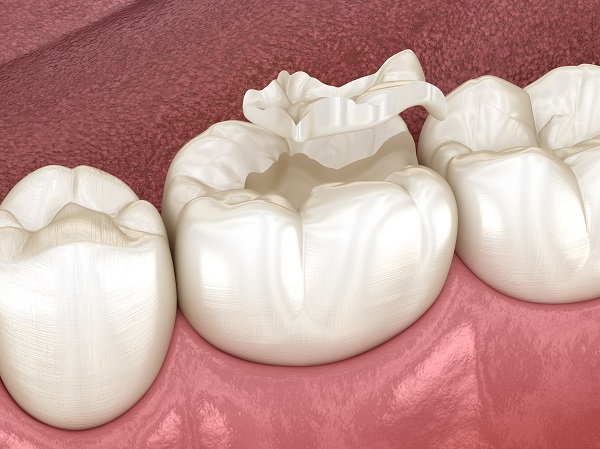Answers to Questions about Dental Sealants

For extra protection against tooth cavities, dental sealants are an ideal option to consider. Dental cavities are one of the most common dental issues that affect both adults and children. Sometimes, brushing and flossing are not enough to protect the teeth from decay. Regular checkups are also important; during one of these appointments, the dentist might recommend and provide dental sealants. This article answers some of the questions patients often have about the procedure.
What are dental sealants?
Dental sealants are thin coatings applied over the chewing surfaces of the molars and premolars to stop tooth cavities. It is essentially a covering for the tooth’s surface to keep out food particles that are sometimes hard to remove from the pits and fissures when brushing. The sealant is white, transparent or somewhat tinted. Therefore, it is indistinguishable on the teeth when the person speaks or smiles.
Is the process painful?
The dental sealant application is simple and causes no pain. The dentist will clean the tooth properly and apply a gel on the tooth’s surface for several seconds. The tooth is rinsed afterward and dried. Then, the sealant material is applied to the tooth enamel where it bonds directly and hardens. In some cases, the dentist may use a curing light to harden the sealant into a protective shield.
How long do dental sealants last?
Sealants are highly durable. They can survive up to 10 years with proper maintenance. Patients need to visit the dentist for regular dental checkups to prolong the lifespan of the sealants. If the sealants break, the dentist can reapply or replace the sealants.
Who is an ideal candidate for sealants?
Generally, dental sealants can serve preventative purposes for everyone. Kids who are developing teeth can get their teeth sealed to prevent early occurrences of tooth decay. Teenagers who are susceptible to cavities can also get sealants to cover their permanent teeth. Even adults can get a dental sealant, although they tend to ignore the importance of this preventative treatment. A decayed tooth affects more than just oral health–it impacts general well-being as well. Patients can discuss with their dentist to know if dental sealants would be beneficial for them.
Will dental sealants change the tooth?
The good part of sealants is that they blend in with the teeth. The layer is thin and does not change how the tooth feels. The dentist will check to make sure the bite remains the same. In the first few hours or days after getting the sealant, the tongue may feel the difference, but it will become familiar soon enough. There are no known side effects of using sealants, except allergic reaction, but even this is rare and not harmful.
Final note
The earlier you get dental sealants, the better. Undergoing the procedure now will prevent you from eventually having to get dental restorations to repair a decayed tooth. The sealants will work as a practical preventive measure to prevent dental issues. As they say, prevention is better than cure. If you have additional questions, book an appointment with the dentist.
Request an appointment here: https://daytondentalcaretroy.com or call Dayton Dental Care at (937) 335-7460 for an appointment in our Troy office.
Check out what others are saying about our dental services on Yelp: Dental Sealants in Troy, OH.
Recent Posts
A dental infection is no laughing matter. It is a serious oral issue that can be fatal when left untreated. Dental infections arise from the bacteria that live inside the mouth. When a person has good oral health, bacteria cannot penetrate the teeth and gums.However, when a tooth's structure becomes compromised or gets beneath the…
Same day crown technology has made it possible for patients to get a crown over a tooth on the same day as their dental appointment. Crowns, commonly known as "caps," can treat a broad range of dental problems. They are used to treat decayed parts of teeth, replace a missing tooth as part of a…
Dentures are not exclusive to senior citizens. Many unavoidable circumstances could lead to tooth loss. This is when a quick teeth replacement system must come in. If you want to find out when you should get dentures, here are the details.Tooth loss results in gaps between teeth. The empty spaces prompt the neighboring teeth to…
Getting a root canal is a frightening event for some people. Of all the work dentists can do for you and your oral health, this one is among the procedures that cause the most anxiety. If you have fears about this procedure, it is helpful to learn more about it and what happens. As you…


